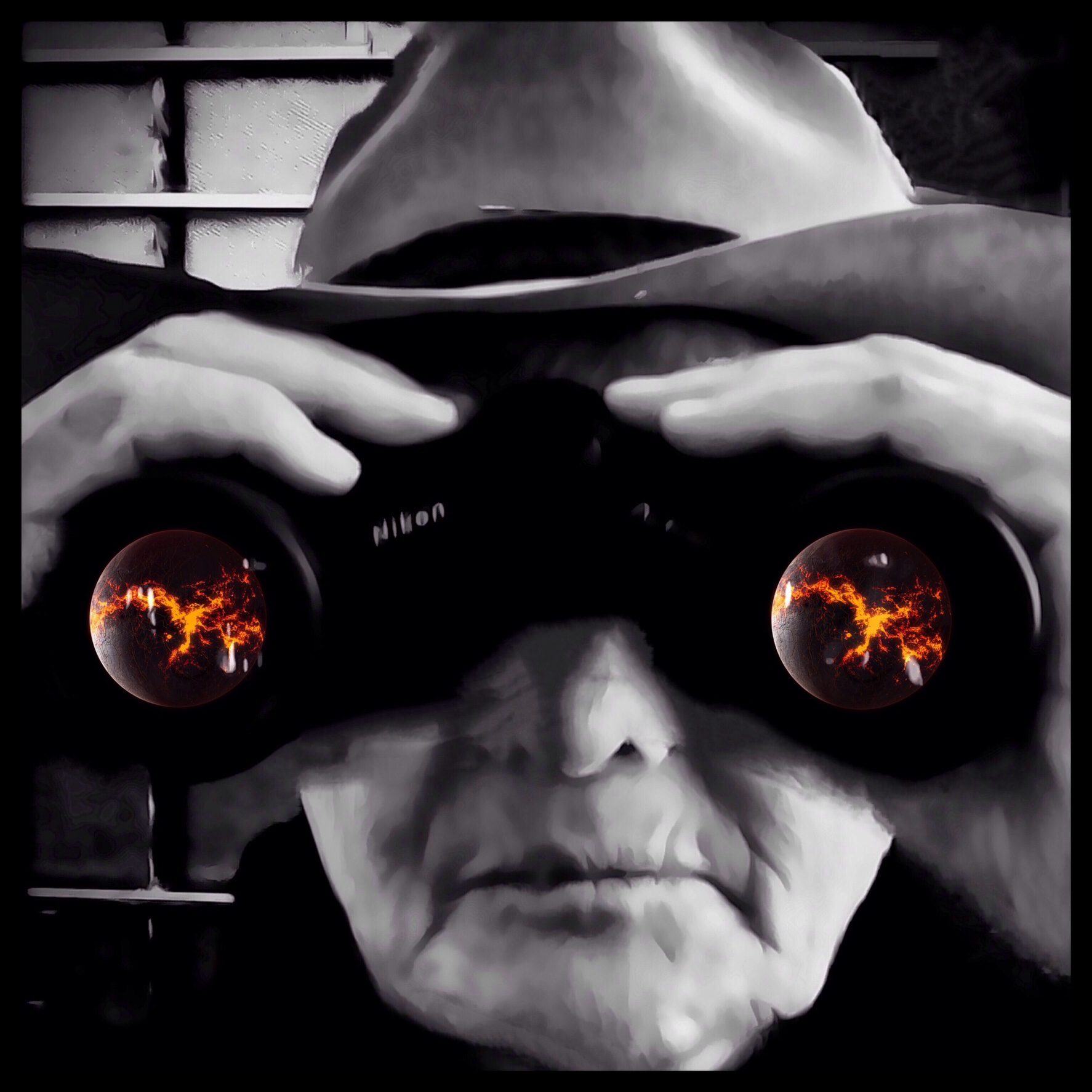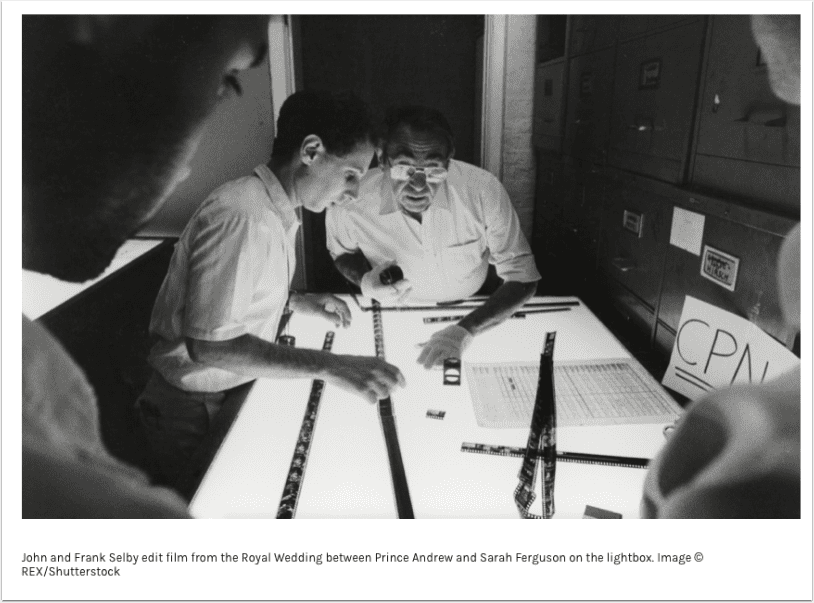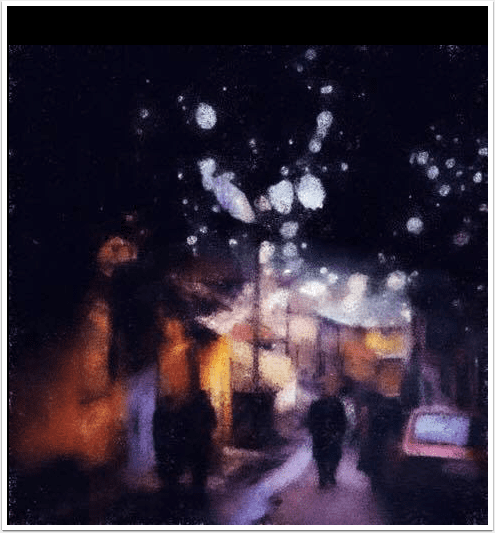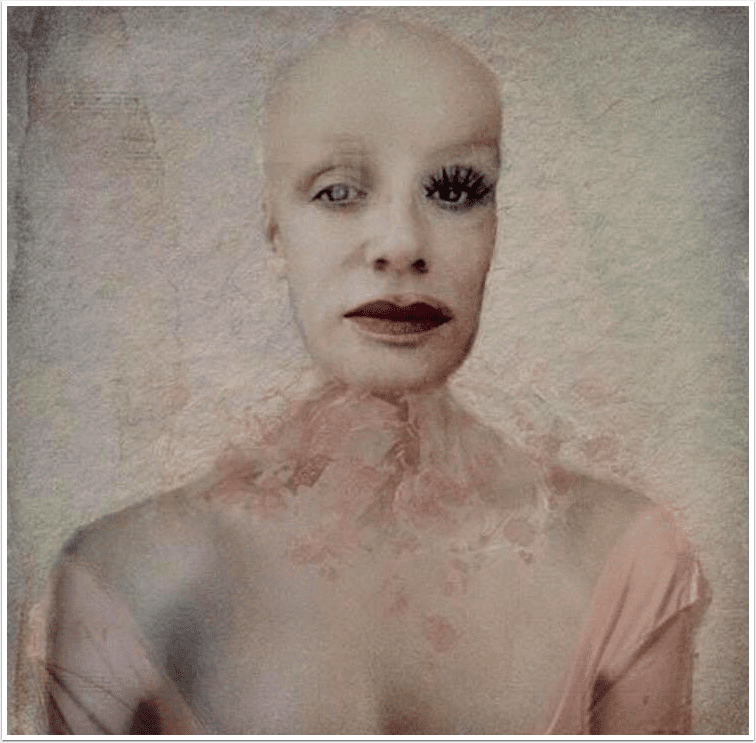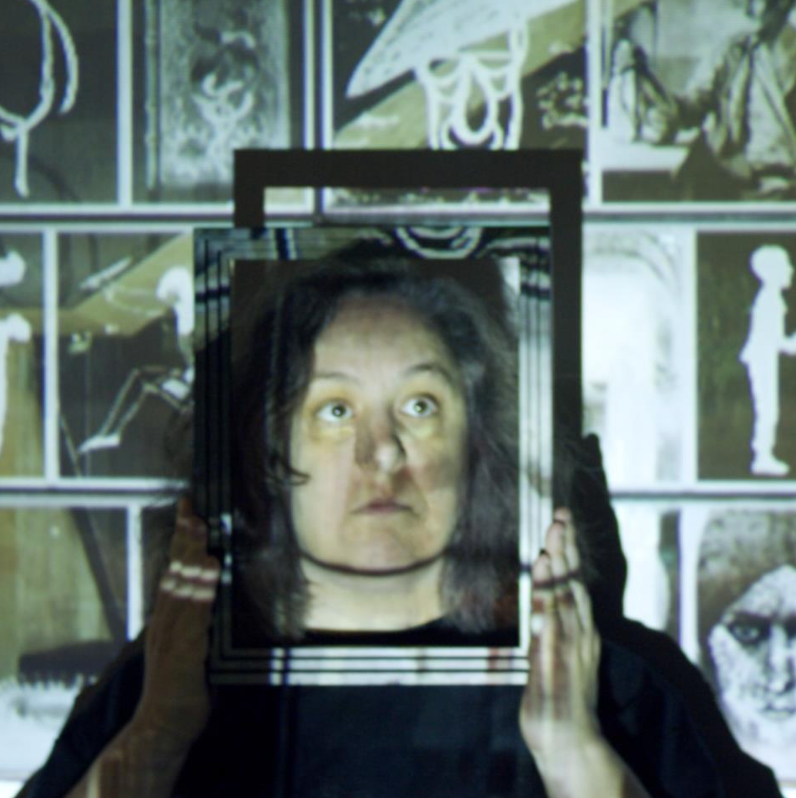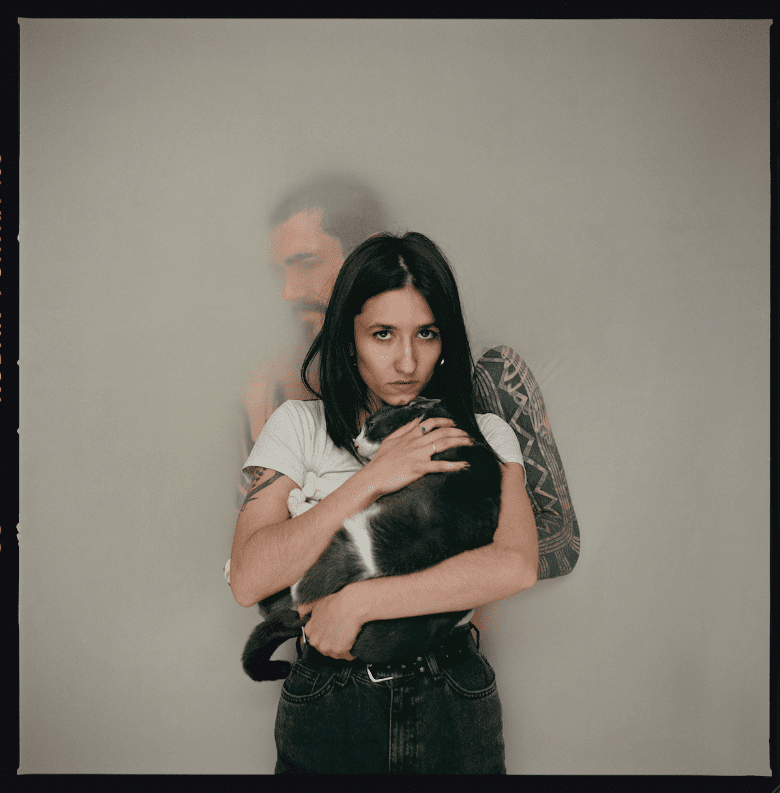
What does Brexit mean for love? A Portraiture Series by Laura Pannack ‘Separation’ with Affinity Photo App
I am delighted to publish this incredible series of portraiture by Laura Pannack a London-based photographer. The series was commissioned by British Journal of Photography and created with Affinity Photo, a professional editing software app for iPad. Affinity Photo, Apple’s official iPad App of the Year 2017, was used by Pannack throughout the Separation photo shoot. “To have something so versatile and so advanced on an iPad is astounding,” says Pannack. “Because the editing is incredibly quick, we could try different things out.”
Each portrait is accompanied by candid reflections from each couple detailing how Brexit has personally affected their relationship.
The couples that feature in Separation are all of different nationalities: one half of each is British and the other half from elsewhere in Europe. The nationalities of the featured couples are: British, Italian, Finnish, Bulgarian, Spanish, Polish, Swedish, French and German.
At least one half of each of the couples featured in Separation works in London’s creative sector, a diverse and thriving industry that has long been a draw for Europeans moving to the capital. The job titles of the couples include: film programmer, arts tutor, sound artist, graphic designer, animation designer and professional drummer, amongst others.
We have published three portraiture images from this series, as well as the complete series of films and reflections from each couple. To view this article on BJP, please go here.
Giulia and Stuart – Communications Manager, Digital Consultant and Sound Artist
Giulia:
Brexit was devastating. Stuart changed jobs so he could work on the Remain campaign in the digital creative team. The experience of facing a majority Leave vote, after six months of working 12-hour days, was indescribable. I have felt different in the UK since the referendum result was announced, and markedly less welcome. I moved to the UK straight after graduating through a six-month work placement, ironically funded by the European Union. Six months quickly became one year, and here I am ten years later.
We were planning to get married at some point in the future but Brexit hurried us along. We got married six months ago in the hope that it would provide extra security in the UK for me, and also so Stuart could start applying for Italian citizenship. We are both actively looking for jobs in Italy so we can move there as soon as possible. Ideally we want to be out of the country by the time Brexit has had full effect.
Giulia and Stuart. Film © Laura Pannack.
Mirjami and Adam – Graphic Designer, Support Worker
Mirjami:
When Brexit happened, I took it personally. I come from an immigrant family and had been exposed to racism and stereotyping throughout my childhood. I was born in Finland but my parents are Chinese so I’ve always felt like an outsider. When I moved to London, I felt like everyone came from elsewhere for the first time; everyone looked different, everyone felt like they belonged. That made me feel like I belonged here too.
After the Brexit vote, I felt that same feeling I had felt as a kid, like I’m not wanted and I’m just a nuisance to the locals. That made me bitter and angry and I felt this massive gap between me and British people. As Adam himself is British, sometimes I felt that gap between us too, even though he did not feel the same way. Adam also resented the referendum result, but he has always remained nonchalant in his belief that it won’t have any bearing on our relationship and future.
Mirjami and Adam. Film © Laura Pannack.
Giacomo (Italian) and Glenn (Australian British) Picture library Manager, Primary School Teacher
Giacomo:
When we heard the results of the EU referendum we felt betrayed. It was as if a curtain had been lifted and we could now see Britain’s true colours. Brexit made us feel as if the UK is not as tolerant, welcoming, or open minded as we had believed that it was. Perhaps we were lucky, and blind to this, because we live in London, but we always thought that the richness and uniqueness of England was in part due to its multicultural society. I thought British people valued European immigrants and how they contribute to the development of the economy and society. But, with the results of the referendum, we felt undervalued and deceived.
We are married, but applying for a British Passport is very costly and requires hundreds of documents and forms that frighten me. One of the most disappointing things is that my husband will not be able to live in Italy with me, or any other European country. That right has been taken away from him.
Against our wishes, we have had to abandon our plans for the future, which we made before Brexit, as it is very unlikely that we will be able to live and travel freely between European countries.
Giacomo and Glenn. © Laura Pannack
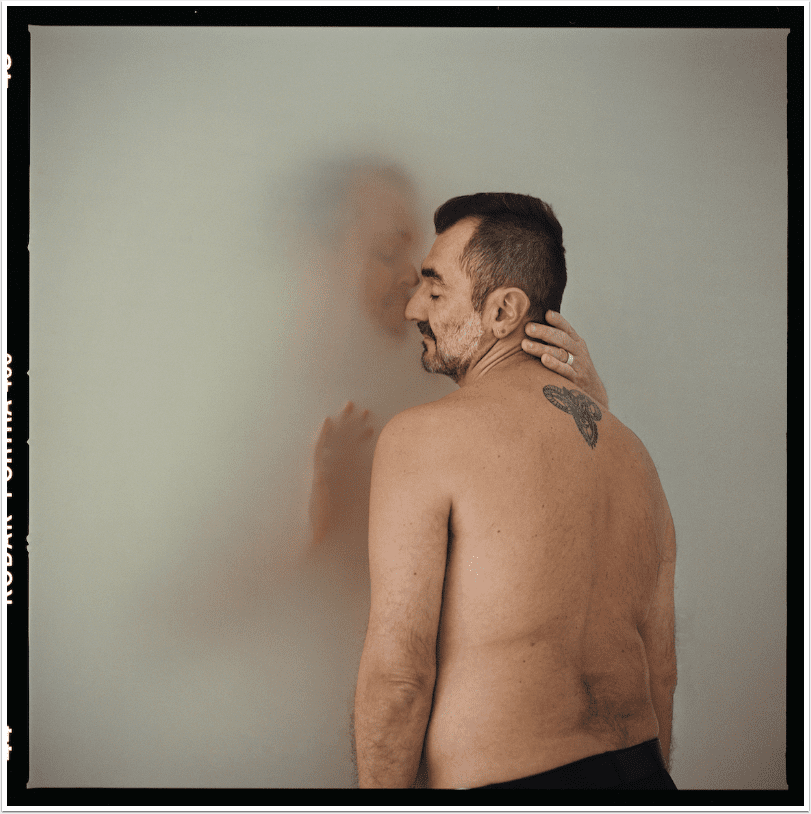
Celia (Spanish)and Chris (British) Fashion Student, Risk Manager
Celia:
I feel privileged to have come to the UK to study at Central Saint Martins. One of the aspects that makes CSM so special is its international atmosphere. It breeds creativity and this is the same reason why London’s creative industries are so exciting. Brexit will no doubt change this and one of the most important positives of the city will be lost. I am keen to work in the UK after I graduate, but I now fear that it will be much harder to secure a job. The possibility of studying an MA is also highly unlikely after Brexit, particularly if university fees for European students increase further.
Chris:
Brexit means that the younger generation is having to accept the decision of the older majority. One of my main frustrations with Brexit is the illusion that democracy is fair. Everyone has a vote, but naturally a significant portion of the population is nearing, or in, retirement. The decisions being made about the future will not impact the older generation, yet they carry the most weight. I do not blame them for this, but my frustration grows when you see political campaigns promoting falsehoods, targeted to exploit their, perhaps, misplaced concerns.
Celia and Chris. © Laura Pannack
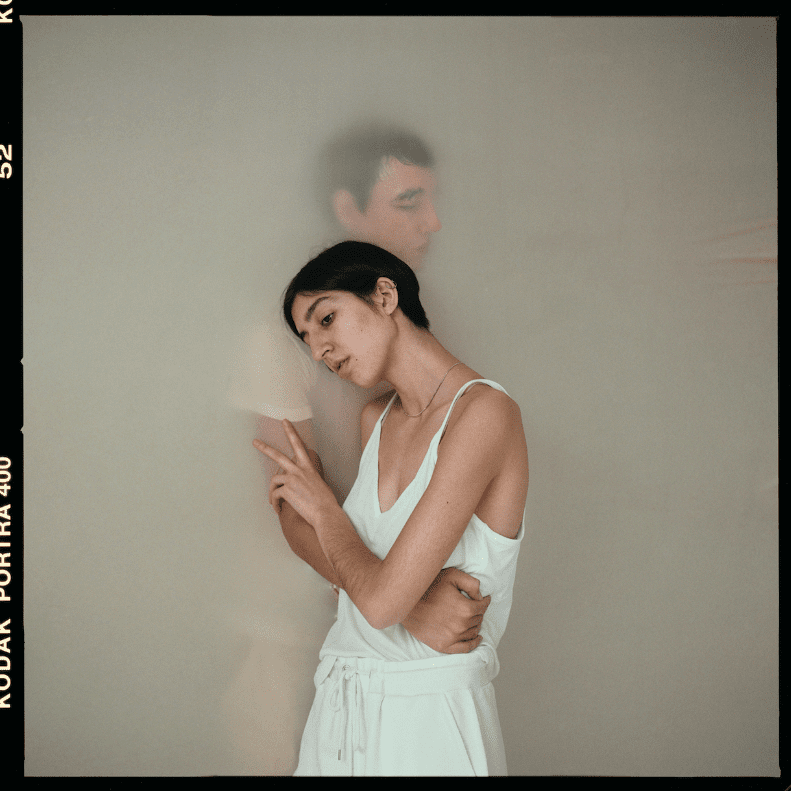
Ellie (Bulgarian) and Lars (British) Animation Designer, Arts Tutor
Ellie:
For the entirety of the 10 years that I have lived in the UK, I have been lucky to be surrounded by lovely people. No one has ever pulled a face when I told them where I was from and I’ve never experienced homophobic abuse. I doubt that would be the case if I was in Bulgaria. What upset me about the Brexit vote was the reality that not some, but over half of the population would rather not be part of the EU.
Many jobs in the creative entertainment industry are contract-based, and not necessarily in the same country. A post-Brexit UK will make life harder for both European and British creatives who want to work on big productions. I now have to spend nearly £1,300 to get citizenship (fingers crossed it doesn’t fall through) mainly because Lars and I want to live and work in Barcelona. I don’t want to leave the UK to have my history erased and then find out that I can’t come back to the country which I’ve spent most of my adult life in.
Ellie and Lars. © Laura Pannack.
Annika (Swedish American) and Pete (British) Actuary (currently in training), Account Manager at a Design Agency
Annika:
Brexit raises a lot of questions about our future. The major concern is where to raise children. I can’t imagine having children in the UK when the country’s future is so uncertain. I also have US citizenship so that is another option, but America is no better off right now. Trump being elected President was devastating for me. I see a lot more hate in America than I have ever seen before and it is hard for me to imagine moving back there in its current state. The Brexit vote made me feel very unwelcome as a foreigner; as if people didn’t want me here and that the UK wants to close itself off from other cultures.
Pete:
For all the uncertainty and negativity that the EU referendum has raised, I’ve looked for a positive and realised that it has actually brought Annika and I closer together. We talk more about our future, not just in terms of which city would work best for us, but which country and continent. We share a love of freedom of movement and if that felt compromised then we would have to make tough choices about where to settle long term. It is something that neither of us were expecting to think about after a four year long-distance relationship finally coming to an end. No matter the decision, I know we’ll make it together because, at the end of the day, why should 51 percent of the population come between us?
Annika and Pete. © Laura Pannack
Nadia (Italian) and Paul (British)Photographer, Tattoo Artist
Nadia:
I had a view of Britain as a multi-cultural melting pot that accepts everyone and embraces difference. When the referendum result was announced, it was clear that the reality is very different. I am sad that this nice country, one that once accepted the world, is closing its doors, but at the same time I don’t feel pushed away by the vote. Brexit means that Paul will need to marry me so I can stay in the UK.
Paul:
I voted Remain. In a world already so divided, the idea of Britain going at it alone does not seem right. The referendum result was a surprise for me. After living in the UK my whole life, and growing up surrounded by a mixture of cultures, I am open to the world and what it means to have cultural differences. I hope that the decision to leave the European Union was not just about immigration and border control.
Nadia and Paul. © Laura Pannack.

Jerry (Polish) and Helena (British) Professional Drummer, Waitress and Receptionist
Helena:
Jerry has always been aware of a strong animosity towards himself and other immigrants. Although I was aware of these attitudes, they were not something that I had been personally confronted with. Since the Brexit vote, I have witnessed more discrimination, including one personal experience. I was shocked by the result of the EU referendum but, based on his experiences of British attitudes, Jerry was not at all surprised. Brexit has not and will not affect our relationship, although it has changed our view of the UK. We will consider leaving if it brings about certain changes such as the inhibition of free movement.
Caroline (French) and Kadeem (British) Film Programmer, Head of Development at a cultural institution
Caroline and Kadeem:
Living in London is very important to us as a couple. It offers a unique place to explore our shared interests, in a way that no other city really does. There’s so much happening that we are spoiled for choice – there is rarely a dull moment. As an interracial couple, the difficulty that we might face in a less accepting and multicultural city makes living in London an especially important consideration for maintaining a serene and strong relationship.
With Britain leaving the European Union there is a worry that Caroline will move back to France depending on how the negotiations turn out. We feel relatively safe in terms of our job security, however, it is hard to picture a clear future for us together in the UK, especially in terms of building a family. So far, we have never seen our nationality or politics as obstacles for our relationship, but, with Brexit, these could definitely become a challenge. Becoming aware of this is both scary and disappointing.
Lorenzo (Italian) and Phoebe (British) Historian, Footwear Designer
Brexit means that we might have to leave the UK to stay together. We’ve been in London for the last few years because work opportunities are better here. Brexit made us suddenly aware that we live in a bubble and that the rest of the UK looks upon the wealth of opportunity and flow of money in London with envy and bitterness. Maybe we are part of the problem – neither one of us would consider living outside of the M25. We spend a lot of time in Italy but we never leave London, except to go to Gatwick.
Having grown up as “Europeans” we are dismayed to find that we won’t necessarily have the freedom to live in either of our countries. Lorenzo has not been continuously employed in the UK, and now it seems that this country is only interested in those Europeans who have been paying into our fiscal system, which feels unfair. Ultimately, we have decided to move to Italy by 2019 – Phoebe has already applied for dual nationality.
Lorenzo and Phoebe. © Laura Pannack
Jana (German) and Luke (British)
Jana:
We love London. Despite being financially squeezed, we managed to buy a small two bedroom flat in Islington. It is is our home and gives us everything we need to live a happy life in London. We are part of the local community and have made many friends. Our daughters are going to nursery and school here and we don’t really want to move.
After the referendum we thought a lot about relocating our family to Germany, and we still do. Although the UK is our home, the uncertainty, not only with my status, but also with the UK economy, has made us consider a move. There is so much instability in the UK and a lot of stability in Germany.
Our lives there would be more predictable and more secure. Our German community has also shrunken drastically. Out of the eight local families we used to meet regularly, six have moved back to Germany. This is not all down to Brexit but it was definitely a contributing factor. Britain’s future out of the EU will be bleak; I can already feel it crumbling around me.
Jana and Luke. © Laura Pannack.
About Laura Pannack
Laura Pannack is a London-based photographer. She was educated at the University of Brighton, Central Saint Martins College of Art and London College of Communication. Her work has been extensively exhibited and published, both in the UK and internationally, including at The National Portrait Gallery, The Houses of Parliament, Somerset House, and the Royal Festival Hall in London.
In January 2018, Pannack was named winner of the 2018 Julia Margaret Cameron Award for Women Photographers. Other awards include Getty Images Prestige Grant – 1st prize, Sony World Photography Award – 2nd prize and Prix HSBC Pour la Photographie Prize.
While You’re Here…
TheAppWhisperer has always had a dual mission: to promote the most talented mobile artists of the day and to support ambitious, inquisitive viewers the world over. As the years passTheAppWhisperer has gained readers and viewers and found new venues for that exchange.
All this work thrives with the support of our community.
Please consider making a donation to TheAppWhisperer as this New Year commences because your support helps protect our independence and it means we can keep delivering the promotion of mobile artists that’s open for everyone around the world. Every contribution, however big or small, is so valuable for our future.
